This article brings together 10 famous poems of all time, chosen not by popularity alone, but by personal resonance. These are poems that have endured because they speak honestly about life, emotion, and the human condition. They are my personal selection of what I consider the best poems ever written.
Each poem on this list has left a lasting impression on me. In particular, poem number five holds a special place—it continues to inspire me and gives me strength in difficult moments. While many of these poems are widely known and you may already be familiar with them, revisiting them with an open and calm mind reveals layers that are often missed.
These classic poems are written in such a powerful and immersive way that they draw you directly into the poet’s world. They do not merely tell a story; they make you feel, reflect, and pause.
All the poems featured here explore life in its many forms—hope, struggle, love, loss, and meaning. Read them slowly and thoughtfully, and you may find that they begin to speak for themselves.
Let us now dive into this list of 10 of the best poems of all time.
Explore more in our Poetry Section.
10 Famous Poems of All Times
#1. “If “- A famous poem by Rudyard Kipling
If you can keep your head when all about you
– by Rudyard Kipling
Are losing theirs and blaming it on you,
If you can trust yourself when all men doubt you,
But make allowance for their doubting too;
If you can wait and not be tired by waiting,
Or being lied about, don’t deal in lies,
Or being hated, don’t give way to hating,
And yet don’t look too good, nor talk too wise:
If you can dream—and not make dreams your master;
If you can think—and not make thoughts your aim;
If you can meet with Triumph and Disaster
And treat those two impostors just the same;
If you can bear to hear the truth you’ve spoken
Twisted by knaves to make a trap for fools,
Or watch the things you gave your life to, broken,
And stoop and build ’em up with worn-out tools:
If you can make one heap of all your winnings
And risk it on one turn of pitch-and-toss,
And lose, and start again at your beginnings
And never breathe a word about your loss;
If you can force your heart and nerve and sinew
To serve your turn long after they are gone,
And so hold on when there is nothing in you
Except the Will which says to them: ‘Hold on!’
If you can talk with crowds and keep your virtue,
Or walk with Kings—nor lose the common touch,
If neither foes nor loving friends can hurt you,
If all men count with you, but none too much;
If you can fill the unforgiving minute
With sixty seconds’ worth of distance run,
Yours is the Earth and everything that’s in it,
And—which is more—you’ll be a Man, my son!
Short Summary of the Poem “If—”
The poem presents a set of moral and emotional principles for living a balanced, resilient, and honorable life. It advises maintaining self-control during chaos, trusting oneself without arrogance, and responding to success and failure with equal calm. The poet emphasizes patience, integrity, humility, perseverance, and inner strength, especially in the face of loss, injustice, or exhaustion.
Ultimately, the poem suggests that true maturity comes from mastering one’s emotions, values, and actions. By living with discipline, empathy, and courage, a person earns not material rewards alone, but wisdom, character, and a fulfilled sense of humanity.
#2. “The Road Not Taken” by Robert Frost
Two roads diverged in a yellow wood,
– by Robert Frost
And sorry I could not travel both
And be one traveler, long I stood
And looked down one as far as I could
To where it bent in the undergrowth;
Then took the other, as just as fair,
And having perhaps the better claim,
Because it was grassy and wanted wear;
Though as for that the passing there
Had worn them really about the same,
And both that morning equally lay
In leaves no step had trodden black.
Oh, I kept the first for another day!
Yet knowing how way leads on to way,
I doubted if I should ever come back.
I shall be telling this with a sigh
Somewhere ages and ages hence:
Two roads diverged in a wood, and I—
I took the one less traveled by,
And that has made all the difference.
Short Summary of “The Road Not Taken”
by Robert Frost
“The Road Not Taken” is a reflective poem about choice and its lasting impact on life. Using the image of two diverging paths in a forest, the poet explores how decisions shape our identity and future. The speaker chooses a path that appears less traveled, symbolizing individuality and personal choice, while acknowledging uncertainty and the impossibility of knowing what might have happened otherwise.
Ultimately, the poem reflects on how humans give meaning to their choices over time. It suggests that our lives are defined not just by the decisions we make, but by how we interpret and remember them.
#3. “Shall I compare thee to a summer’s day?” by William Shakespeare.
Shall I compare thee to a summer’s day?
-by William Shakespeare.
Thou art more lovely and more temperate.
Rough winds do shake the darling buds of May,
And summer’s lease hath all too short a date.
Sometime too hot the eye of heaven shines,
And often is his gold complexion dimmed;
And every fair from fair sometime declines,
By chance, or nature’s changing course, untrimmed;
But thy eternal summer shall not fade,
Nor lose possession of that fair thou ow’st,
Nor shall death brag thou wand’rest in his shade,
When in eternal lines to Time thou grow’st.
So long as men can breathe, or eyes can see,
So long lives this, and this gives life to thee.
Short Summary of “Shall I compare thee to a summer’s day?”
by William Shakespeare
In this sonnet, Shakespeare compares the beloved to a summer’s day, only to conclude that the beloved is far superior. Unlike summer—which is brief, unpredictable, and imperfect—the beloved’s beauty is constant, gentle, and enduring. Time may diminish all natural beauty, but the poet claims that love preserved in poetry can achieve immortality.
The poem ultimately celebrates the power of art and verse: as long as the poem is read, the beloved’s beauty will live on forever.
#4. “I Wandered Lonely as a Cloud” by William Wordsworth
I wandered lonely as a cloud
– by William Wordsworth
That floats on high o’er vales and hills,
When all at once I saw a crowd,
A host, of golden daffodils;
Beside the lake, beneath the trees,
Fluttering and dancing in the breeze.
Continuous as the stars that shine
And twinkle on the milky way,
They stretched in never-ending line
Along the margin of a bay:
Ten thousand saw I at a glance,
Tossing their heads in sprightly dance.
The waves beside them danced; but they
Out-did the sparkling waves in glee:
A poet could not but be gay,
In such a jocund company:
I gazed—and gazed—but little thought
What wealth the show to me had brought:
For oft, when on my couch I lie
In vacant or in pensive mood,
They flash upon that inward eye
Which is the bliss of solitude;
And then my heart with pleasure fills,
And dances with the daffodils.
Short Summary of “I Wandered Lonely as a Cloud”
by William Wordsworth
“I Wandered Lonely as a Cloud” celebrates the healing and uplifting power of nature. The poem describes the poet’s chance encounter with a vast field of golden daffodils beside a lake, whose beauty instantly fills him with joy. The flowers appear lively and joyful, surpassing even the movement of the waves nearby.
Later, when the poet is alone or lost in thought, the memory of the daffodils returns to him. This recollection brings renewed happiness and inner peace. The poem emphasizes how nature, once experienced, continues to nourish the mind and soul through memory, transforming solitude into a source of quiet bliss.
#5. “And Still I Rise” by Maya Angelou
You may write me down in history
– Maya Angelou
With your bitter, twisted lies,
You may tread me in the very dirt
But still, like dust, I’ll rise.
Does my sassiness upset you?
Why are you beset with gloom?
‘Cause I walk like I’ve got oil wells
Pumping in my living room.
Just like moons and like suns,
With the certainty of tides,
Just like hopes springing high,
Still I’ll rise.
Did you want to see me broken?
Bowed head and lowered eyes?
Shoulders falling down like teardrops.
Weakened by my soulful cries.
Does my haughtiness offend you?
Don’t you take it awful hard
‘Cause I laugh like I’ve got gold mines
Diggin’ in my own back yard.
You may shoot me with your words,
You may cut me with your eyes,
You may kill me with your hatefulness,
But still, like air, I’ll rise.
Does my sexiness upset you?
Does it come as a surprise
That I dance like I’ve got diamonds
At the meeting of my thighs?
Out of the huts of history’s shame
I rise
Up from a past that’s rooted in pain
I rise
I’m a black ocean, leaping and wide,
Welling and swelling I bear in the tide.
Leaving behind nights of terror and fear
I rise
Into a daybreak that’s wondrously clear
I rise
Bringing the gifts that my ancestors gave,
I am the dream and the hope of the slave.
I rise
I rise
I rise.
Short Summary of “Still I Rise”
by Maya Angelou
“Still I Rise” is a powerful poem of resistance, self-worth, and unbreakable spirit. In the face of oppression, prejudice, and historical injustice, the speaker refuses to be silenced or diminished. Each act of hatred or humiliation becomes a reason to rise higher, stronger, and more confident.
The poem celebrates dignity, identity, and inherited strength—especially the resilience passed down from generations who endured suffering. Angelou transforms pain into pride and defiance into hope, asserting that no force can suppress the human spirit. Ultimately, the poem is a triumphant declaration of survival, freedom, and self-affirmation.
#6. “The Raven” by Edgar Allan Poe
Once upon a midnight dreary, while I pondered, weak and weary,
– by Edgar Allan Poe
Over many a quaint and curious volume of forgotten lore—
While I nodded, nearly napping, suddenly there came a tapping,
As of some one gently rapping, rapping at my chamber door.
“’Tis some visitor,” I muttered, “tapping at my chamber door—
Only this and nothing more.”
Ah, distinctly I remember it was in the bleak December;
And each separate dying ember wrought its ghost upon the floor.
Eagerly I wished the morrow;—vainly I had sought to borrow
From my books surcease of sorrow—sorrow for the lost Lenore—
For the rare and radiant maiden whom the angels name Lenore—
Nameless here for evermore.
And the silken, sad, uncertain rustling of each purple curtain
Thrilled me—filled me with fantastic terrors never felt before;
So that now, to still the beating of my heart, I stood repeating
“’Tis some visitor entreating entrance at my chamber door—
Some late visitor entreating entrance at my chamber door;—
This it is and nothing more.”
Presently my soul grew stronger; hesitating then no longer,
“Sir,” said I, “or Madam, truly your forgiveness I implore;
But the fact is I was napping, and so gently you came rapping,
And so faintly you came tapping, tapping at my chamber door,
That I scarce was sure I heard you”—here I opened wide the door;—
Darkness there and nothing more.
Deep into that darkness peering, long I stood there wondering, fearing,
Doubting, dreaming dreams no mortal ever dared to dream before;
But the silence was unbroken, and the stillness gave no token,
And the only word there spoken was the whispered word, “Lenore?”
This I whispered, and an echo murmured back the word, “Lenore!”—
Merely this and nothing more.
Back into the chamber turning, all my soul within me burning,
Soon again I heard a tapping somewhat louder than before.
“Surely,” said I, “surely that is something at my window lattice;
Let me see, then, what thereat is, and this mystery explore—
Let my heart be still a moment and this mystery explore;—
’Tis the wind and nothing more!”
Open here I flung the shutter, when, with many a flirt and flutter,
In there stepped a stately Raven of the saintly days of yore;
Not the least obeisance made he; not a minute stopped or stayed he;
But, with mien of lord or lady, perched above my chamber door—
Perched upon a bust of Pallas just above my chamber door—
Perched, and sat, and nothing more.
Then this ebony bird beguiling my sad fancy into smiling,
By the grave and stern decorum of the countenance it wore,
“Though thy crest be shorn and shaven, thou,” I said, “art sure no craven,
Ghastly grim and ancient Raven wandering from the Nightly shore—
Tell me what thy lordly name is on the Night’s Plutonian shore!”
Quoth the Raven “Nevermore.”
Much I marvelled this ungainly fowl to hear discourse so plainly,
Though its answer little meaning—little relevancy bore;
For we cannot help agreeing that no living human being
Ever yet was blessed with seeing bird above his chamber door—
Bird or beast upon the sculptured bust above his chamber door,
With such name as “Nevermore.”
But the Raven, sitting lonely on the placid bust, spoke only
That one word, as if his soul in that one word he did outpour.
Nothing farther then he uttered—not a feather then he fluttered—
Till I scarcely more than muttered “Other friends have flown before—
On the morrow he will leave me, as my Hopes have flown before.”
Then the bird said “Nevermore.”
Startled at the stillness broken by reply so aptly spoken,
“Doubtless,” said I, “what it utters is its only stock and store
Caught from some unhappy master whom unmerciful Disaster
Followed fast and followed faster till his songs one burden bore—
Till the dirges of his Hope that melancholy burden bore
Of ‘Never—nevermore’.”
But the Raven still beguiling all my fancy into smiling,
Straight I wheeled a cushioned seat in front of bird, and bust and door;
Then, upon the velvet sinking, I betook myself to linking
Fancy unto fancy, thinking what this ominous bird of yore—
What this grim, ungainly, ghastly, gaunt, and ominous bird of yore
Meant in croaking “Nevermore.”
This I sat engaged in guessing, but no syllable expressing
To the fowl whose fiery eyes now burned into my bosom’s core;
This and more I sat divining, with my head at ease reclining
On the cushion’s velvet lining that the lamp-light gloated o’er,
But whose velvet-violet lining with the lamp-light gloating o’er,
She shall press, ah, nevermore!
Then, methought, the air grew denser, perfumed from an unseen censer
Swung by Seraphim whose foot-falls tinkled on the tufted floor.
“Wretch,” I cried, “thy God hath lent thee—by these angels he hath sent thee
Respite—respite and nepenthe from thy memories of Lenore;
Quaff, oh quaff this kind nepenthe and forget this lost Lenore!”
Quoth the Raven “Nevermore.”
“Prophet!” said I, “thing of evil!—prophet still, if bird or devil!—
Whether Tempter sent, or whether tempest tossed thee here ashore,
Desolate yet all undaunted, on this desert land enchanted—
On this home by Horror haunted—tell me truly, I implore—
Is there—is there balm in Gilead?—tell me—tell me, I implore!”
Quoth the Raven “Nevermore.”
“Prophet!” said I, “thing of evil!—prophet still, if bird or devil!
By that Heaven that bends above us—by that God we both adore—
Tell this soul with sorrow laden if, within the distant Aidenn,
It shall clasp a sainted maiden whom the angels name Lenore—
Clasp a rare and radiant maiden whom the angels name Lenore.”
Quoth the Raven “Nevermore.”
“Be that word our sign of parting, bird or fiend!” I shrieked, upstarting—
“Get thee back into the tempest and the Night’s Plutonian shore!
Leave no black plume as a token of that lie thy soul hath spoken!
Leave my loneliness unbroken!—quit the bust above my door!
Take thy beak from out my heart, and take thy form from off my door!”
Quoth the Raven “Nevermore.”
And the Raven, never flitting, still is sitting, still is sitting
On the pallid bust of Pallas just above my chamber door;
And his eyes have all the seeming of a demon’s that is dreaming,
And the lamp-light o’er him streaming throws his shadow on the floor;
And my soul from out that shadow that lies floating on the floor
Shall be lifted—nevermore!
Short Summary of “The Raven”
by Edgar Allan Poe
“The Raven” is a dark, psychological poem that explores grief, loss, and the torment of memory. The speaker, mourning the death of his beloved Lenore, is visited by a mysterious raven that perches above his door and speaks only one word: “Nevermore.” What begins as curiosity slowly turns into obsession and despair.
As the speaker questions the raven, the repeated word becomes a symbol of hopelessness, reinforcing his fear that relief from sorrow, reunion with Lenore, or peace of mind will never come. The poem captures the descent of a grieving mind into madness, where sorrow becomes eternal. Ultimately, The Raven portrays how unchecked grief can imprison the soul, leaving it forever trapped in darkness.
#7. “Fire and Ice” by Robert Frost
Some say the world will end in fire,
– by Robert Frost
Some say in ice.
From what I’ve tasted of desire
I hold with those who favor fire.
But if it had to perish twice,
I think I know enough of hate
To say that for destruction ice
Is also great
And would suffice.
Short Summary of “Fire and Ice”
by Robert Frost
“Fire and Ice” is a brief yet powerful poem that reflects on human emotions and their destructive potential. Using fire as a symbol of desire and ice as a symbol of hatred, Frost suggests that both passions can lead to the end of the world. The poem implies that unchecked desire burns fiercely, while hatred freezes compassion and destroys just as completely.
Through its simplicity, the poem delivers a profound message: extreme human emotions—whether passionate or cold—carry the power to cause immense destruction.
#8. “The Tyger” by William Blake
Tyger Tyger, burning bright,
– by William Blake
In the forests of the night;
What immortal hand or eye,
Could frame thy fearful symmetry?
In what distant deeps or skies.
Burnt the fire of thine eyes?
On what wings dare he aspire?
What the hand, dare seize the fire?
And what shoulder, & what art,
Could twist the sinews of thy heart?
And when thy heart began to beat.
What dread hand? & what dread feet?
What the hammer? what the chain,
In what furnace was thy brain?
What the anvil? what dread grasp.
Dare its deadly terrors clasp?
When the stars threw down their spears
And water’d heaven with their tears:
Did he smile his work to see?
Did he who made the Lamb make thee?
Tyger Tyger burning bright,
In the forests of the night:
What immortal hand or eye,
Dare frame thy fearful symmetry?
Short Summary of “The Tyger”
by William Blake
“The Tyger” is a symbolic and philosophical poem that questions the nature of creation and the existence of good and evil. Blake uses the image of a powerful, fearsome tiger to reflect on the mystery of a creator capable of forming such beauty alongside such terror. The poem repeatedly asks how the same divine force could create both innocence (the lamb) and destructive power (the tiger).
Through vivid imagery and relentless questioning, Blake explores themes of divine authority, moral duality, and the awe-inspiring complexity of the universe. The poem ultimately leaves the question unanswered, emphasizing wonder and uncertainty rather than explanation.
#9. “I’m Nobody! Who are you?” by Emily Dickinson
I’m Nobody! Who are you?
-by Emily Dickinson
Are you – Nobody – too?
Then there’s a pair of us!
Don’t tell! they’d advertise – you know!
How dreary – to be – Somebody!
How public – like a Frog –
To tell one’s name – the livelong June –
To an admiring Bog!
Short Summary of “I’m Nobody! Who are you?”
by Emily Dickinson
“I’m Nobody! Who are you?” is a playful yet thought-provoking poem that challenges society’s obsession with fame and public recognition. Dickinson contrasts the quiet freedom of being a “Nobody” with the emptiness of being a celebrated “Somebody,” whose identity is constantly displayed and judged.
Through humor and irony, the poem celebrates privacy, individuality, and authenticity. It suggests that true connection and self-worth are found not in public attention, but in remaining true to oneself away from the noise of the world.
#10. “Because I could not stop for Death” by Emily Dickinson
Because I could not stop for Death –
-by Emily Dickinson
He kindly stopped for me –
The Carriage held but just Ourselves –
And Immortality.
We slowly drove – He knew no haste
And I had put away
My labor and my leisure too,
For His Civility –
We passed the School, where Children strove
At Recess – in the Ring –
We passed the Fields of Gazing Grain –
We passed the Setting Sun –
Or rather – He passed Us –
The Dews drew quivering and Chill –
For only Gossamer, my Gown –
My Tippet – only Tulle –
We paused before a House that seemed
A Swelling of the Ground –
The Roof was scarcely visible –
The Cornice – in the Ground –
Since then – ’tis Centuries – and yet
Feels shorter than the Day
I first surmised the Horses’ Heads
Were toward Eternity –
Source: The Poems of Emily Dickinson, edited by R.W. Franklin (Harvard University Press, 1999)
Short Summary of “Because I could not stop for Death”
by Emily Dickinson
“Because I could not stop for Death” presents death as a calm, courteous companion rather than something to be feared. The poem describes a quiet carriage ride in which Death gently escorts the speaker away from life, passing scenes that symbolize childhood, maturity, and the end of earthly existence.
Through this serene journey, Dickinson suggests that death is not an abrupt end but a transition into eternity. The poem reflects on immortality, time, and acceptance, portraying death as a peaceful passage rather than a moment of terror.
Continue Reading Poetry
Some poems stay with us longer than others. If these words lingered, there are many more waiting—quiet, thoughtful, and written for moments just like this.
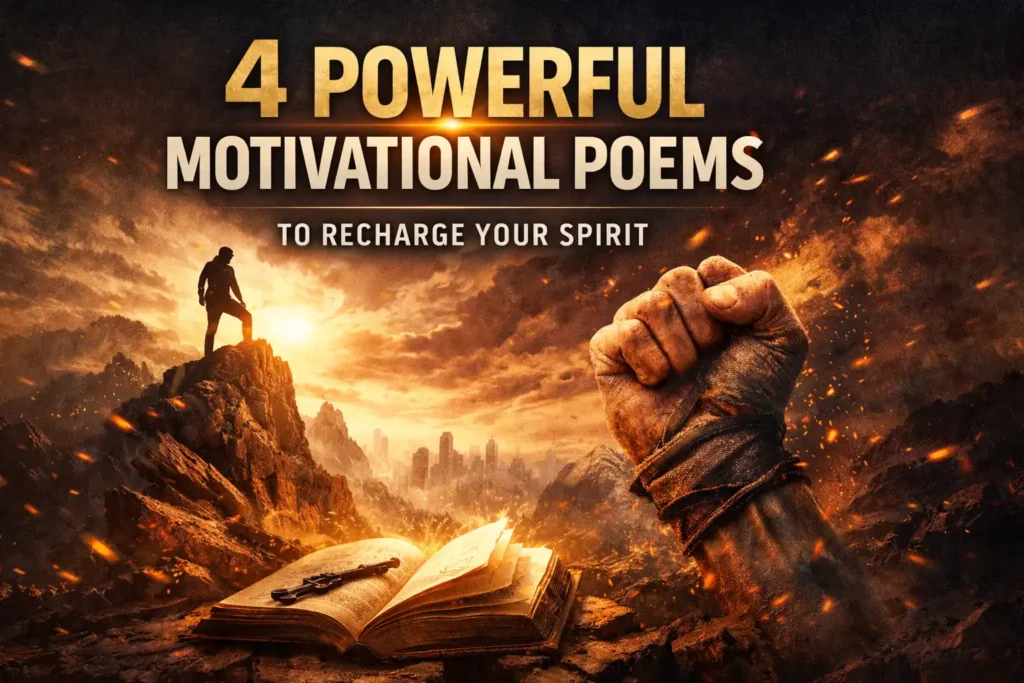

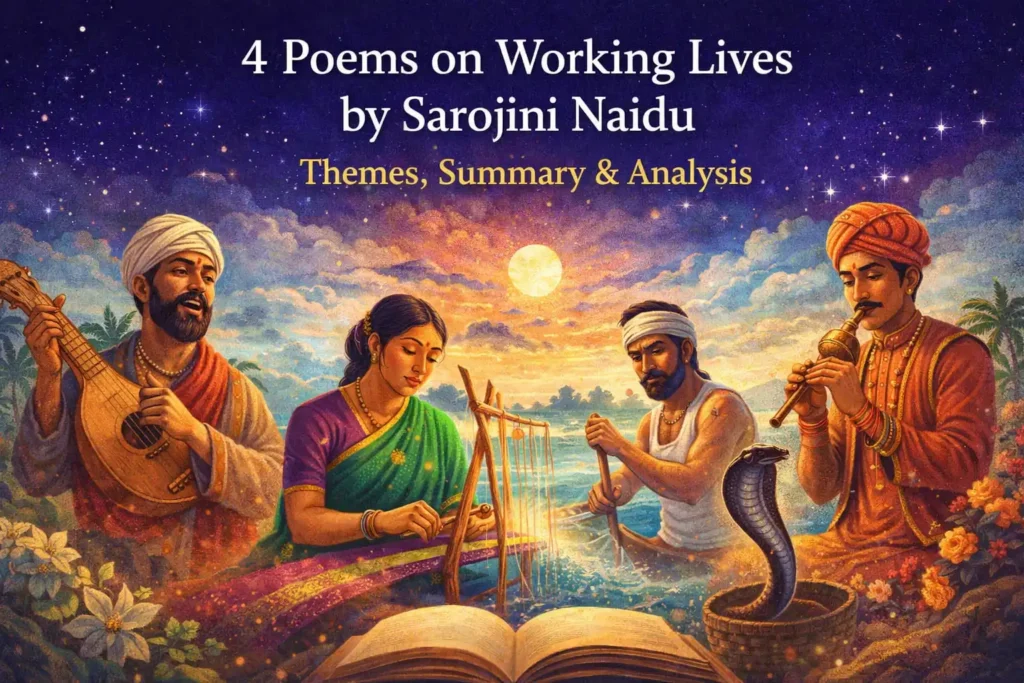
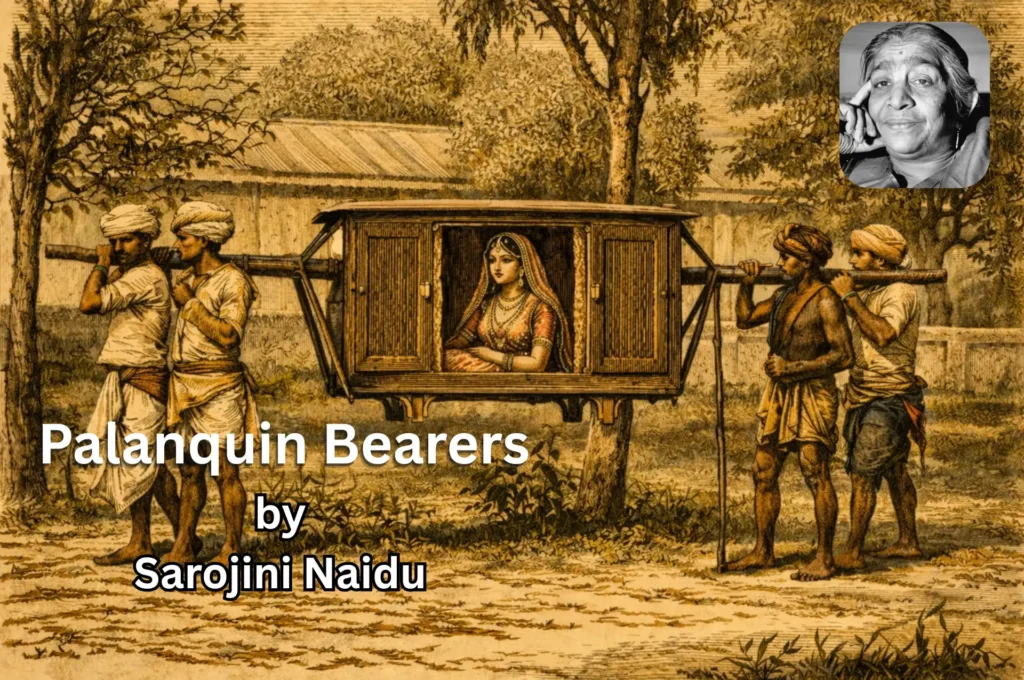

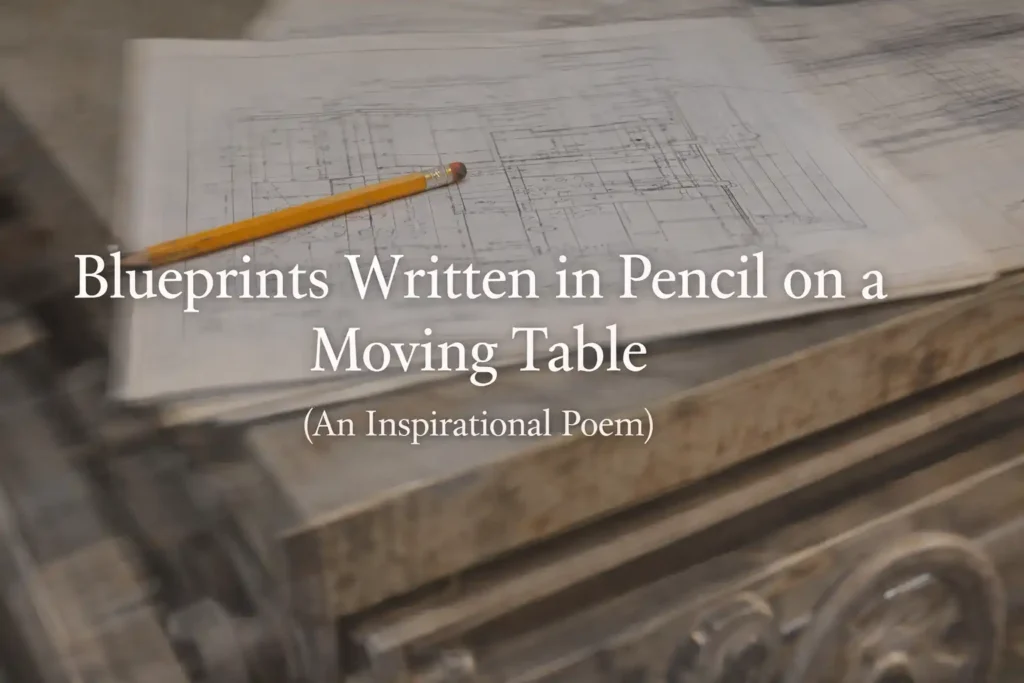


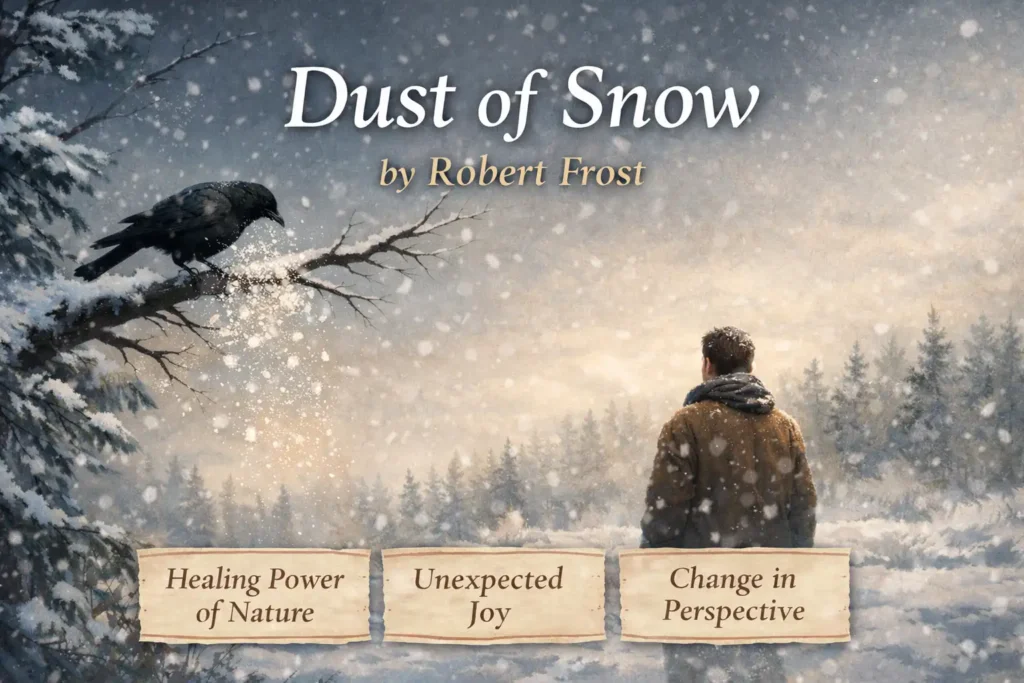
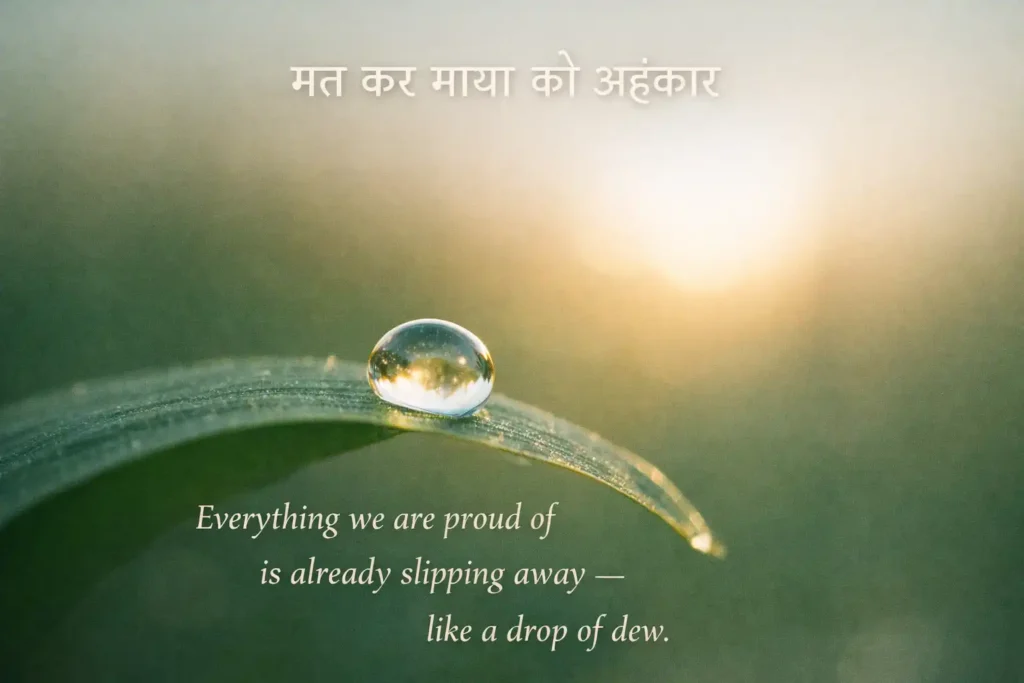
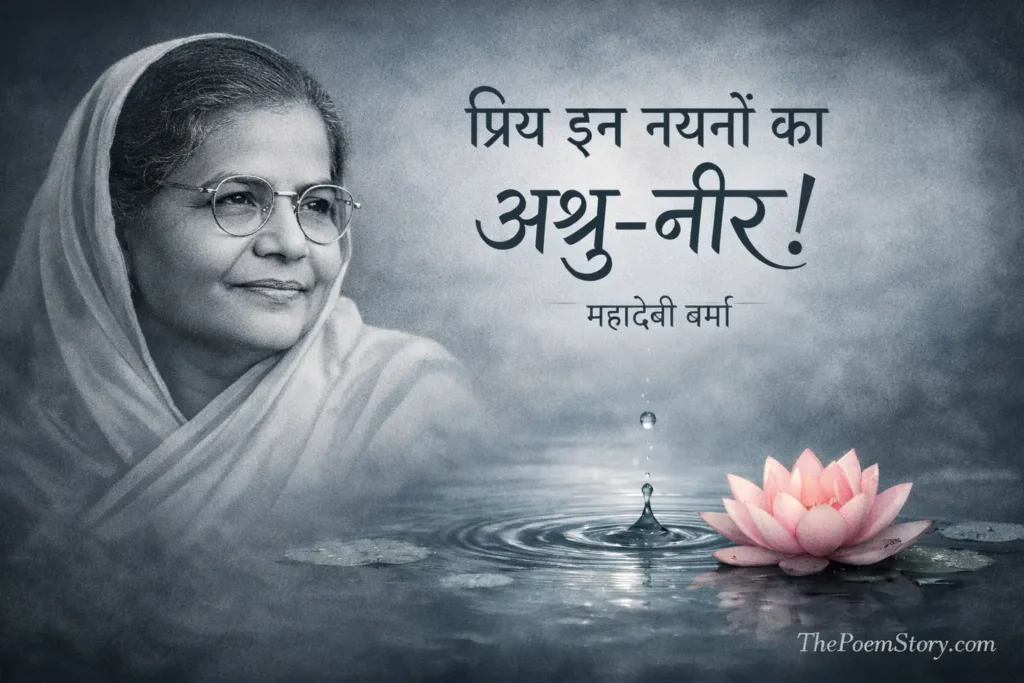
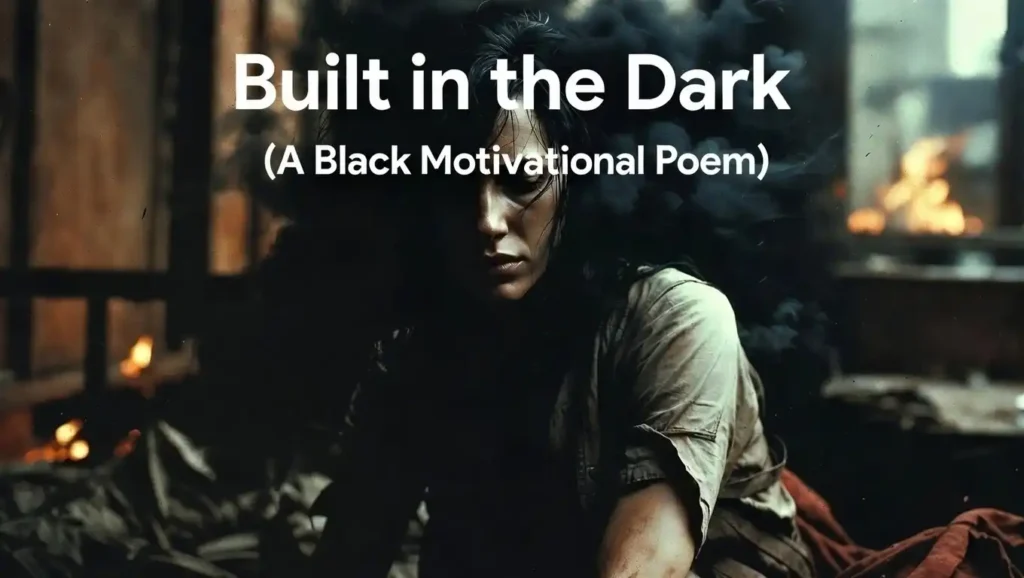
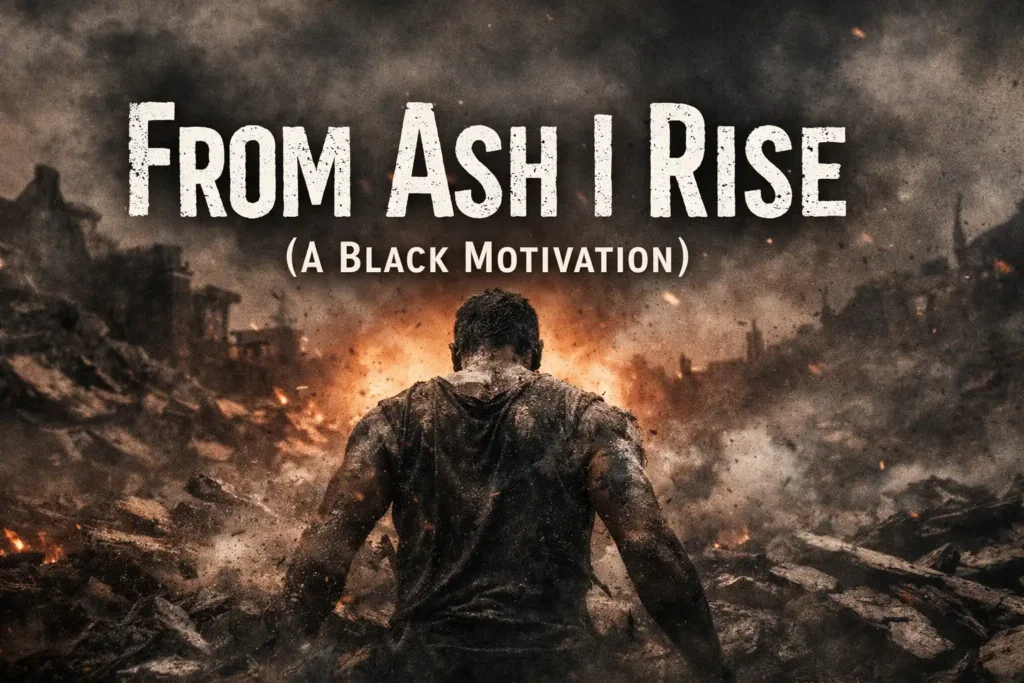

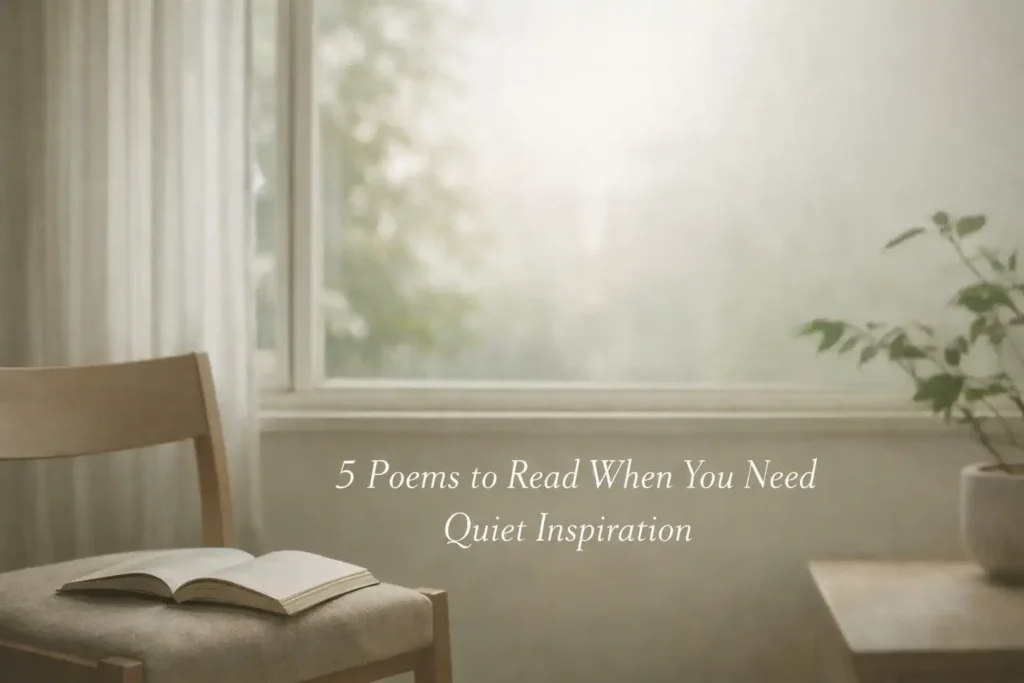

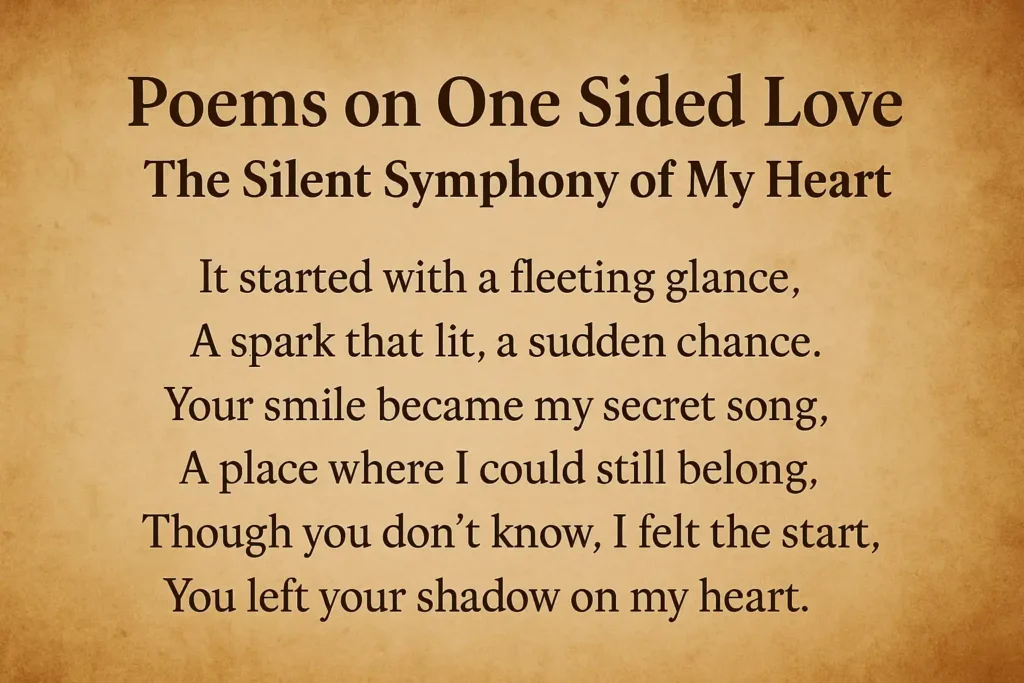
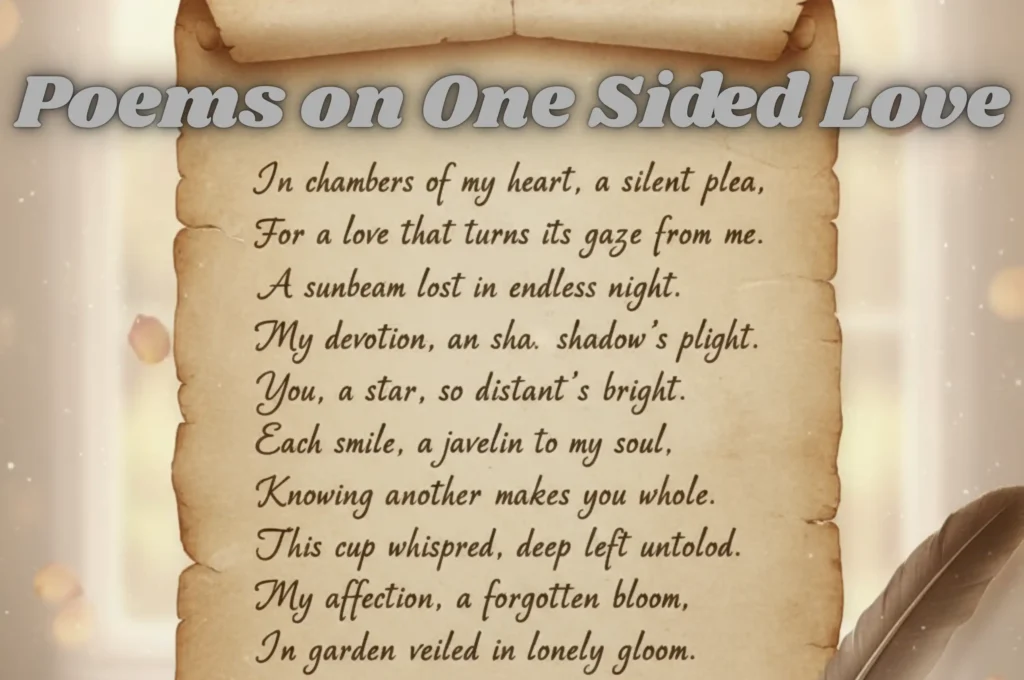
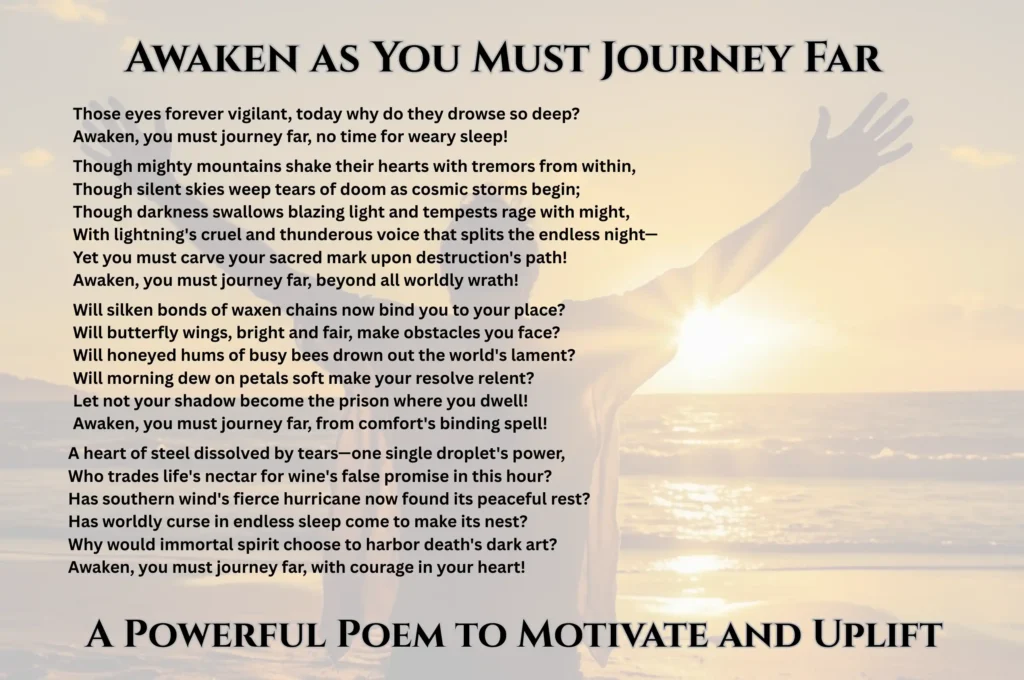

portable balancing machine
Portable Balancing Machine: Balanset-1A
The Balanset-1A is an innovative portable balancing machine designed to provide comprehensive solutions for dynamic balancing and vibration analysis across a wide spectrum of applications. Engineered with advanced technology and versatility, this device is essential for various industries, capable of effectively balancing rotors in numerous types of machinery, including crushers, fans, augers on combines, centrifuges, and turbines.
Features of the Balanset-1A
This portable balancing machine boasts an impressive array of features that enhance its functionality and user experience. Its dual-channel design ensures high precision in balancing tasks, making it suitable for both single and two-plane balancing. The Balanset-1A provides a rich suite of features for vibration analysis:
Vibrometer Mode: Accurately measures rotational speed (RPM) and fundamental frequency components for in-depth analysis.
Phase Measurement: Evaluates the phase angle of vibration signals to assess imbalance with accuracy.
FFT Spectrum Analysis: Delivers detailed analysis of frequency spectra, offering insights into the vibration characteristics of the rotor.
Overall Vibration Monitoring: Keeps track of overall vibration levels to ensure optimal machine performance.
Measurement Logging: Facilitates saving of measurement data for future review and analysis.
Versatile Balancing Modes
The Balanset-1A excels in balancing capabilities with its dual capability to perform single plane and two-plane balancing. The portable balancing machine can reduce vibrations efficiently, ensuring that machinery operates smoothly without disruptive oscillations. It includes:
Polar Graph Visualization: A graphical representation that assists in accurately placing correction weights based on visualized imbalances.
Session Restoration: The ability to resume previously conducted balancing sessions, enhancing user convenience.
Tolerance Calculations: Compliance with ISO 1940 standards for acceptable balancing tolerances.
Grinding Wheel Balancing: Special features for balancing grinding wheels utilizing three counterweights.
Advanced Analysis and Reporting Capabilities
Beyond the balancing features, the Balanset-1A is equipped with robust analytical tools that provide users with comprehensive insights. Key functionalities include:
Archiving and Reporting: The ability to store past session data and generate detailed reports on balancing outcomes to facilitate informed decision-making.
Serial Production Balancing: Perfectly equipped for rotor balancing in serial production processes, ensuring high efficiency.
Adaptive Metric and Imperial Systems: Operational flexibility with measurement systems that adapt for a global audience.
Specifications and Components
The overall effectiveness of the portable balancing machine can be attributed to its well-designed specifications and included components:
Vibration Sensors: Comes with two vibro accelerometers ensuring precise and accurate readings.
Optical Sensor: Laser tachometer providing clear and reliable rotational speed measurements across a specified range.
USB Interface Module: Ensures seamless connection with PCs for enhanced software capabilities and data management.
Software: Facilitates detailed analysis of vibration, calculation of correction mass values, and much more.
Dimensions and Weight
While the Balanset-1A is a powerhouse of features, it is compact and lightweight, weighing in at just 4 kg. Its design allows for portability, making it an ideal tool for on-site assessments without compromising on functionality.
Applications Across Industries
The adhesive versatility of this portable balancing machine finds its applications across numerous sectors, specifically tailored for:
Manufacturing Plants: Where dynamic balancing is essential for productivity and equipment longevity.
Agricultural Machinery: Tailored for balancing equipment involving augers and other agricultural rotors.
Aerospace and Automotive: Engaged in balancing rotors for turbines and automotive components for optimal performance.
Energy Sector: Balancing turbines and other essential machinery to maintain energy efficiency.
Conclusion
The Balanset-1A portable balancing machine is not just a tool; it is the key to unlocking the full potential of machinery performance. Engineered for precision, its robust features, portable design, and comprehensive analytical capabilities make it an indispensable asset in various industries. With the Balanset-1A, businesses can eliminate excess vibrations, reduce wear and tear on machinery, and ultimately achieve higher productivity levels. Get on board with the future of vibration analysis and rotor balancing today!
Watch YouTube Short
Industrial Vibration Analysis: Balanset-1A Rotor Balancing Device
Industrial Vibration Analysis: Balanset-1A Rotor Balancing Device
When it comes to balancing and vibration analysis in industrial settings, the Balanset-1A device stands out as a reliable and efficient tool. Designed for a wide range of applications including balancing rotors such as crushers, fans, turbines, and more, the Balanset-1A offers advanced features that make it a valuable asset for maintenance and quality control.
Key Features of Balanset-1A:
Vibrometer Mode:
Tachometer: Accurately measures rotational speed (RPM).
Phase: Determines the phase angle of vibration signals for precise analysis.
1x Vibration: Analyzes the fundamental frequency component.
FFT Spectrum: Provides detailed frequency spectrum analysis.
Overall Vibration: Monitors overall vibration levels.
Measurement Log: Stores data for further analysis.
Balancing Mode:
Single Plane Balancing: Reduces vibration in a single plane.
Two Plane Balancing: Dynamic balancing in two planes.
Polar Graph: Visualizes unbalance for precise weight placement.
Restore Last Session: Conveniently resume previous balancing sessions.
Tolerance Calculator (ISO 1940): Calculates acceptable balancing tolerance.
Grinding Wheel Balancing: Circular groove for precise balancing.
Additional Capabilities:
Archive: Store previous balancing sessions.
Reports: Generate detailed balancing reports.
Re-balancing: Easily repeat balancing process.
Serial Production Balancing: Suitable for balancing rotors in serial production.
Package Contents:
Vibroconverters – 2 pcs
Phase Angle Sensor (Laser Tachometer) – 1 pc
Measuring Block – 1 pc
Magnetic Stand – 1 pc
Electronic Scales – 1 pc
Transport Case – 1 pc
Software on Flash Drive – 1 pc
Price: 1751 euros
The Balanset-1A device offers the flexibility to switch between the Imperial and Metric systems, ensuring global compatibility and convenience.
With its advanced features and user-friendly design, the Balanset-1A is a valuable tool for industrial vibration analysis and rotor balancing applications.
[b]Contact Information:[/b]
For more information about our Balanset balancing devices and other products, please visit our website: https://vibromera.eu.
Subscribe to our YouTube channel, where you will find instructional videos and examples of completed work: https://www.youtube.com/@vibromera.
Stay updated with our latest news and promotions on Instagram, where we also showcase examples of our work: https://www.instagram.com/vibromera_ou/.
Buy Balanset-1A on Machinio
Balanset-1A OEM on Facebook Marketplace